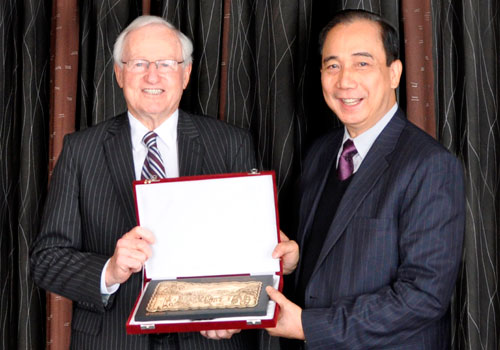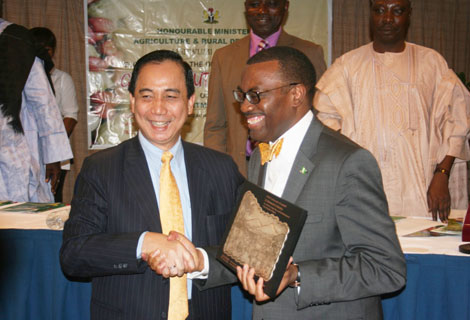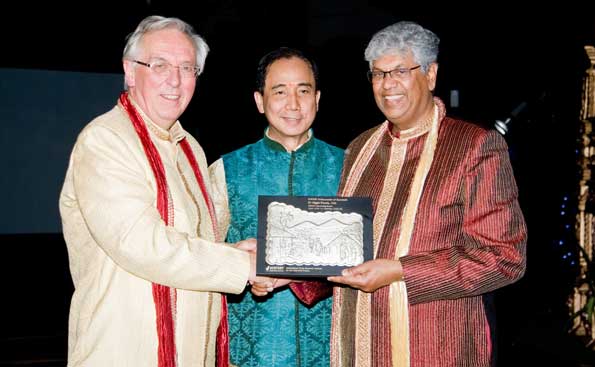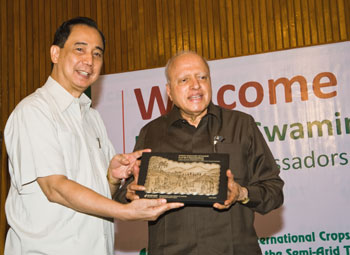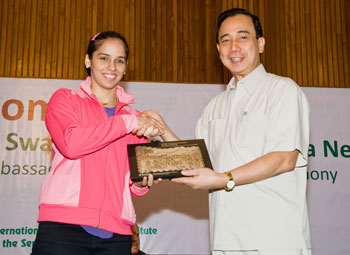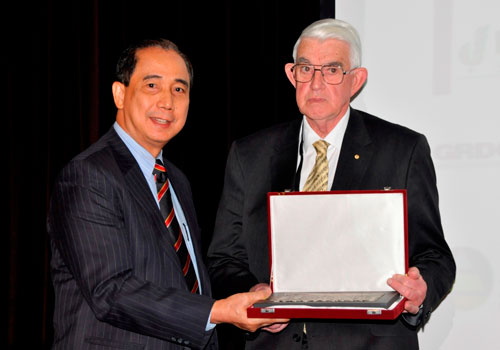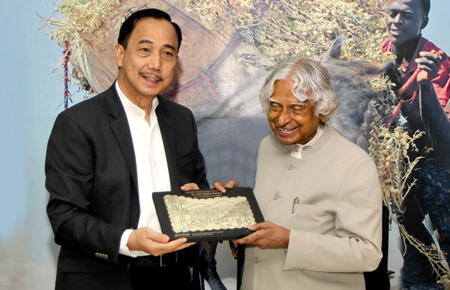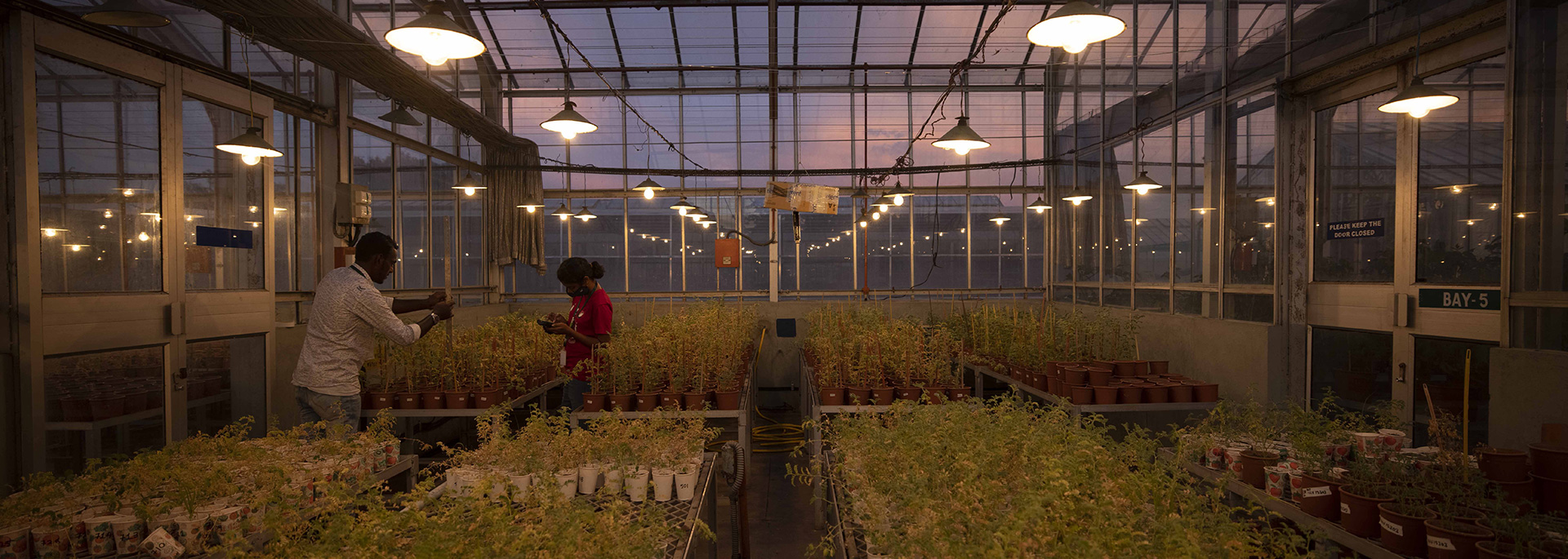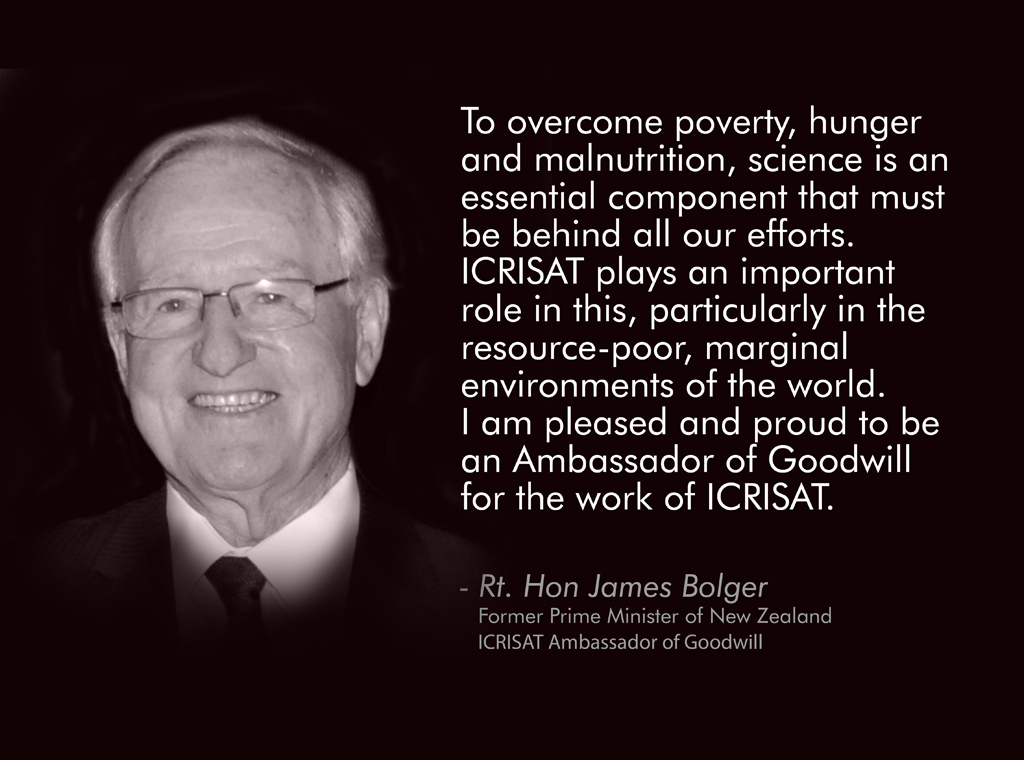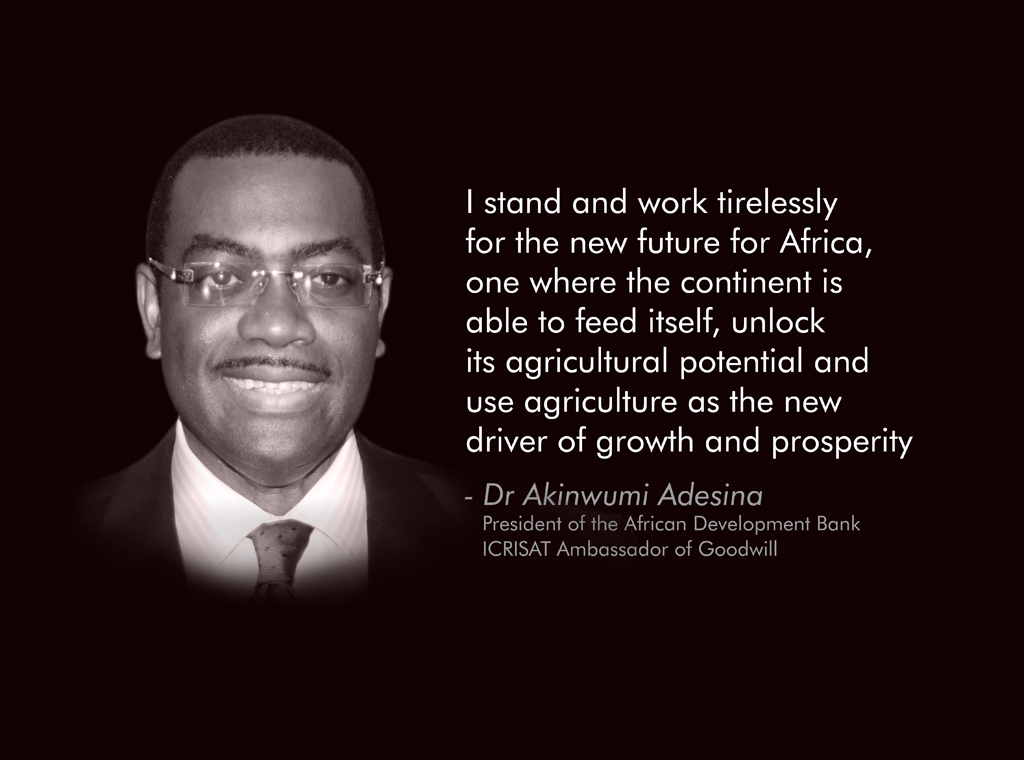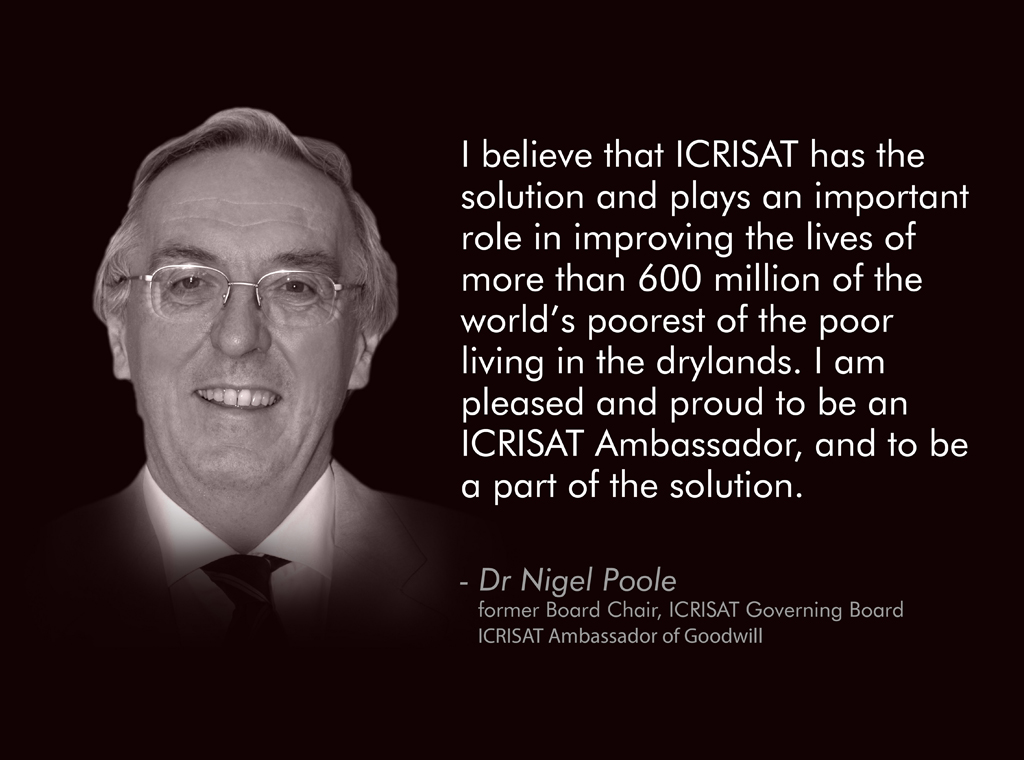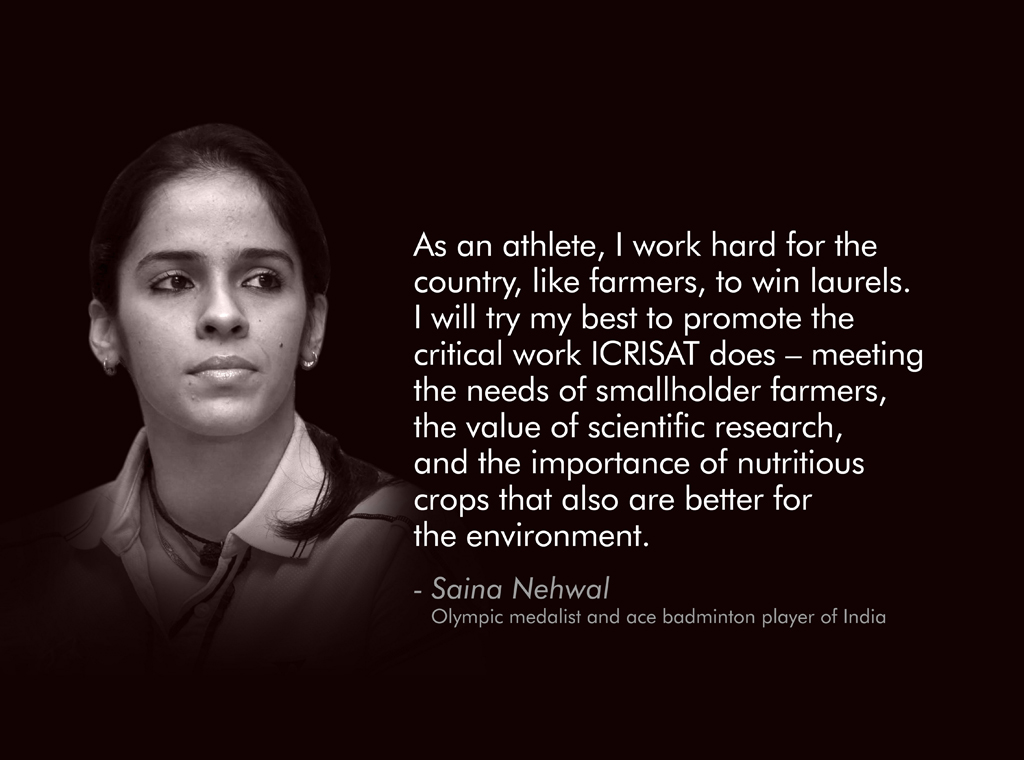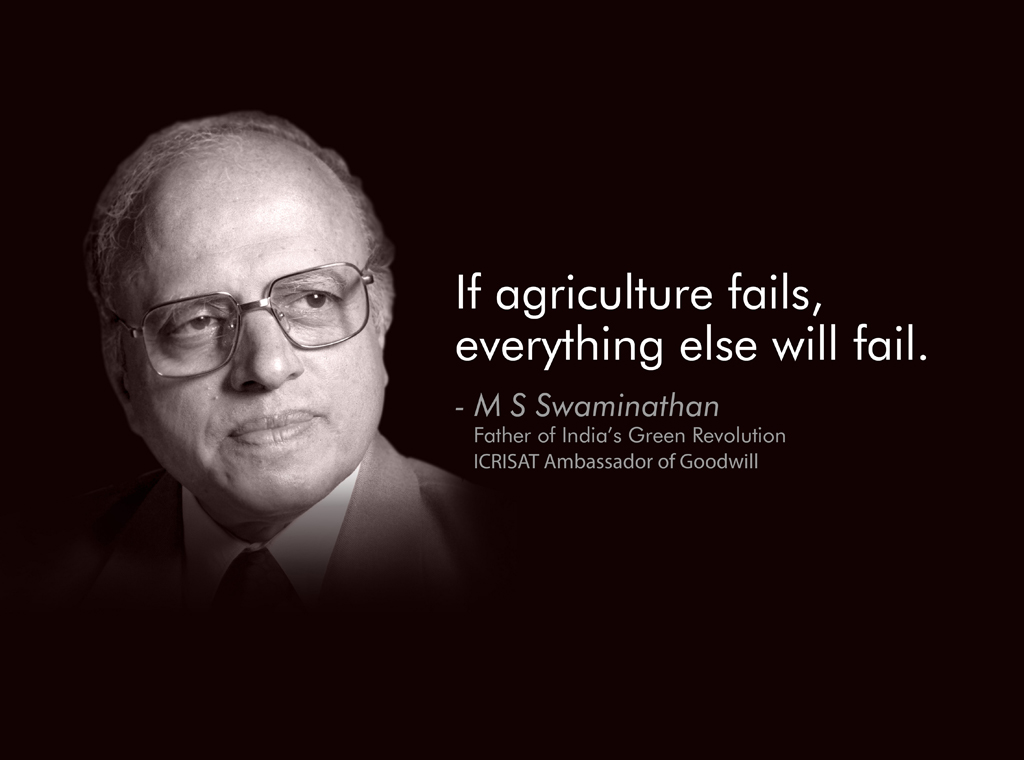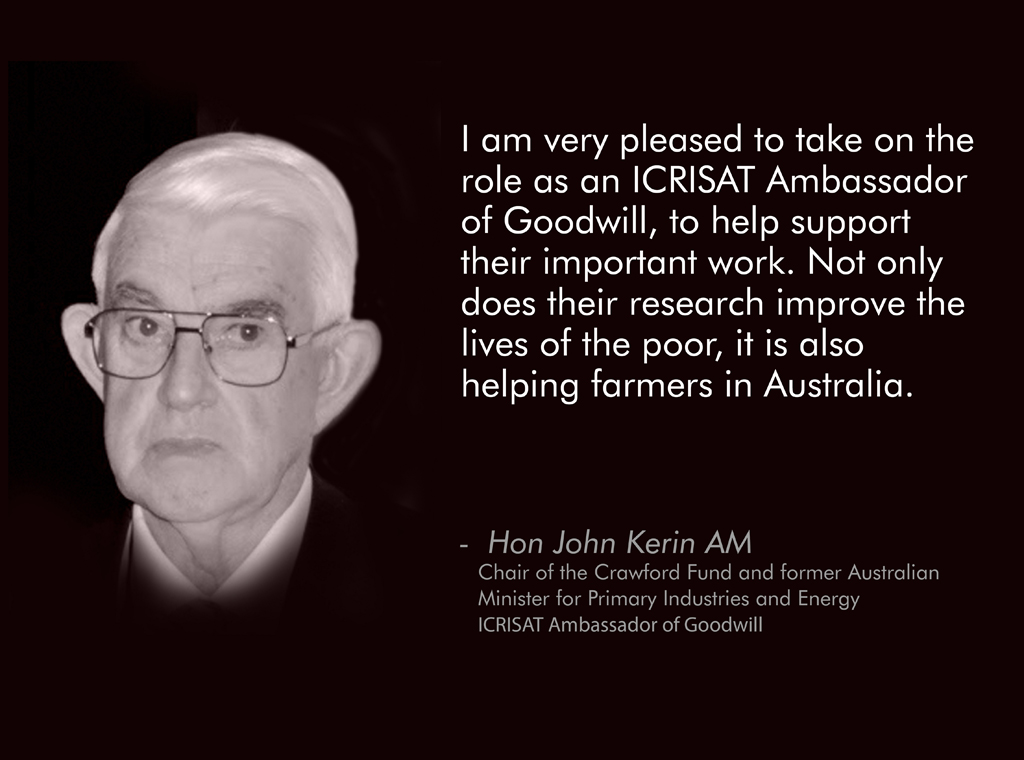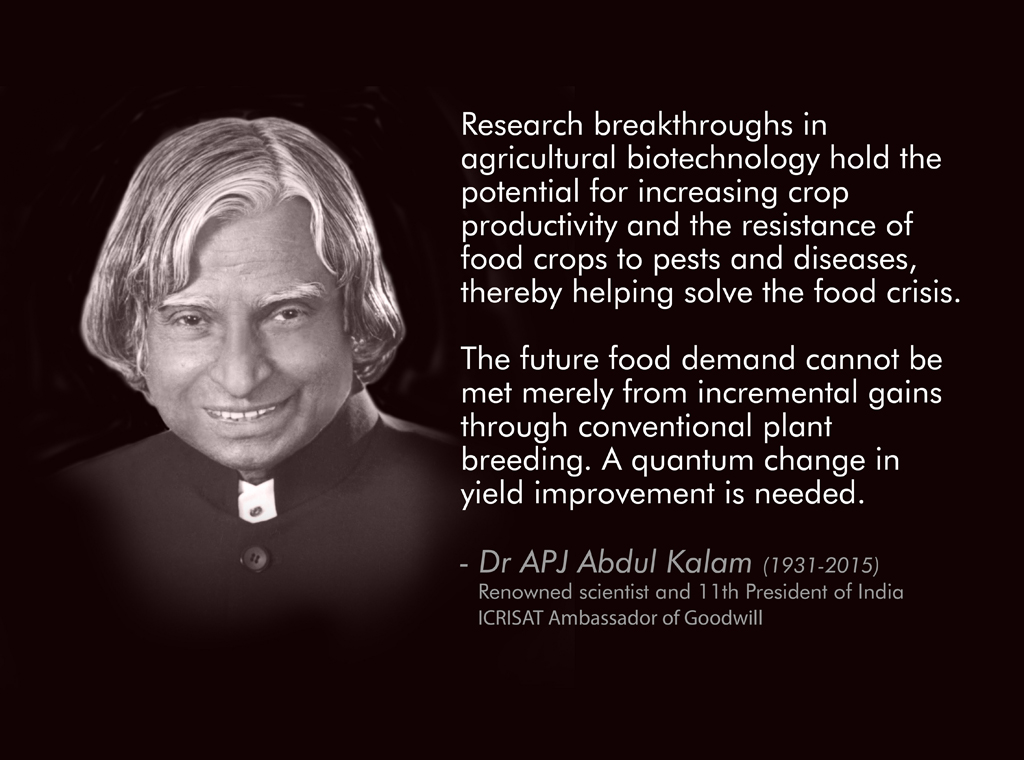Bill Gates visits ICRISAT
Hyderabad, India (1 June 2013) – Mr Bill Gates, Co-chair of the Bill & Melinda Gates Foundation, visited the ICRISAT headquarters in Patancheru, Hyderabad on Thursday, 30 May. This was Mr Gates’ first visit to this Institute where he held discussions with the management and several key scientists to gain a better appreciation of the foundation’s research for development investments to ICRISAT.
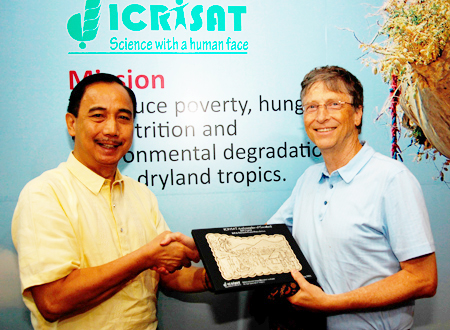 Mr Bill Gates receiving the ICRISAT Ambassador of Goodwill plaque from Dr William Dar, ICRISAT Director GeneralPhoto credit: Prashant Panjiar
Mr Bill Gates receiving the ICRISAT Ambassador of Goodwill plaque from Dr William Dar, ICRISAT Director GeneralPhoto credit: Prashant Panjiar
With food insecurity and malnutrition persisting as the greatest challenges facing humanity in the coming decades, Mr Gates acknowledged the potential of ICRISAT’s works on grain legumes and dryland cereals in helping millions of smallholders farmers in the drylands of Asia and sub-Saharan Africa lift themselves out of hunger, malnutrition and poverty.
“ICRISAT crops are great – as they target millions of smallholder farmers globally,” said Mr Gates. The tour highlighted the uniqueness and importance of the works and initiatives of ICRISAT and its partners, particularly in providing modern crop improvement technologies and best management practices on once ‘orphan’ or neglected crops like grain legumes and dryland cereals.
“The drylands are home to 644 million poorest of the poor, and highly nutritious, drought-tolerant crops such as grain legumes and dryland cereals are the best bets for smallholder farmers in these marginal environments to survive and improve their livelihoods,” explains Dr William Dar,ICRISAT Director General.
Dr David Hoisington, ICRISAT Deputy Director General for Research, highlighted the case of grain legumes and dryland cereals: “Chickpea, pigeonpea and groundnut are the ‘poor people’s meat’ – crucial for ending global malnutrition. Sorghum and millets provide food security to the poorest people.”
ICRISAT scientists demonstrated the different high-end sciences that the institute uses – genomics, bioinformatics, phenotyping and genetic engineering – all integrated or complementing each other as part of its crop improvement program for smallholder farming.
Considered as international public goods, scientists and national partners worldwide can have
free access to ICRISAT’s genotyping and phenotyping data, captured and analyzed
through its work on bioinformatics, for their respective molecular breeding processes.
“That was cool!” was how Mr Gates reacted on ICRISAT’s lysimeter facility
for phenotyping, a first of its kind in the world and the largest within the CGIAR system.
The facility is now being successfully used for measuring plant responses to water stress
related to drought and climate change adaptation.
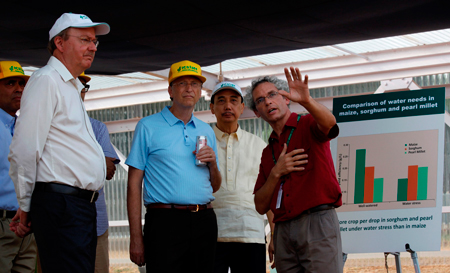 Mr Bill Gates at ICRISAT’s lysimeter facility for phenotyping Others in the photo, L-R: Dr Prem Warrior (behind), Senior Program Officer, Bill & Melinda Gates Foundation; Dr David Hoisington, ICRISAT Deputy Director General for Research;
Dr William Dar, ICRISAT Director General; and Dr Vincent Vadez, Assistant Program Director - Dryland Cereals, ICRISAT (speaking). Photo credit: Prashant Panjiar
Mr Bill Gates at ICRISAT’s lysimeter facility for phenotyping Others in the photo, L-R: Dr Prem Warrior (behind), Senior Program Officer, Bill & Melinda Gates Foundation; Dr David Hoisington, ICRISAT Deputy Director General for Research;
Dr William Dar, ICRISAT Director General; and Dr Vincent Vadez, Assistant Program Director - Dryland Cereals, ICRISAT (speaking). Photo credit: Prashant Panjiar
Mr Gates also engaged in a roundtable discussion with ICRISAT scientists on the impacts and challenges of applying the science on the ground. Two projects funded by the foundation were highlighted as the case: the HOPE project (Harnessing Opportunities for Productivity Enhancement of Sorghum and Millets) in sub-Saharan Africa and South Asia which seeks to increase by 30% the productivity of sorghum and millets in 200,000 farmers’ fields; and the Tropical
Legumes I & II project which aims to enhance productivity of six legume crops (groundnut, cowpea, common bean, chickpea, pigeonpea and soybean) by at least 20% through improved cultivars and management practices and the development of markets and value chains.
The poor in the target areas of these two projects are the most malnourished, food-insecure in the world, unable to earn adequate incomes from agriculture which is their only source of food, nutrition and livelihoods. The impacts and achievements of these foundation-funded projects are now changing the lives of the poor, providing millions of smallholder farmers with tools and opportunities to boost their yields, increase their incomes, and build better lives for themselves and their families.
Recognizing the consistent and generous support of the Bill & Melinda Gates Foundation to the institute, ICRISAT honored Mr Bill Gates as their first Ambassador of Goodwill.
ICRISAT is a member of the CGIAR Consortium. CGIAR is a global agriculture research partnership for a food secure future.
